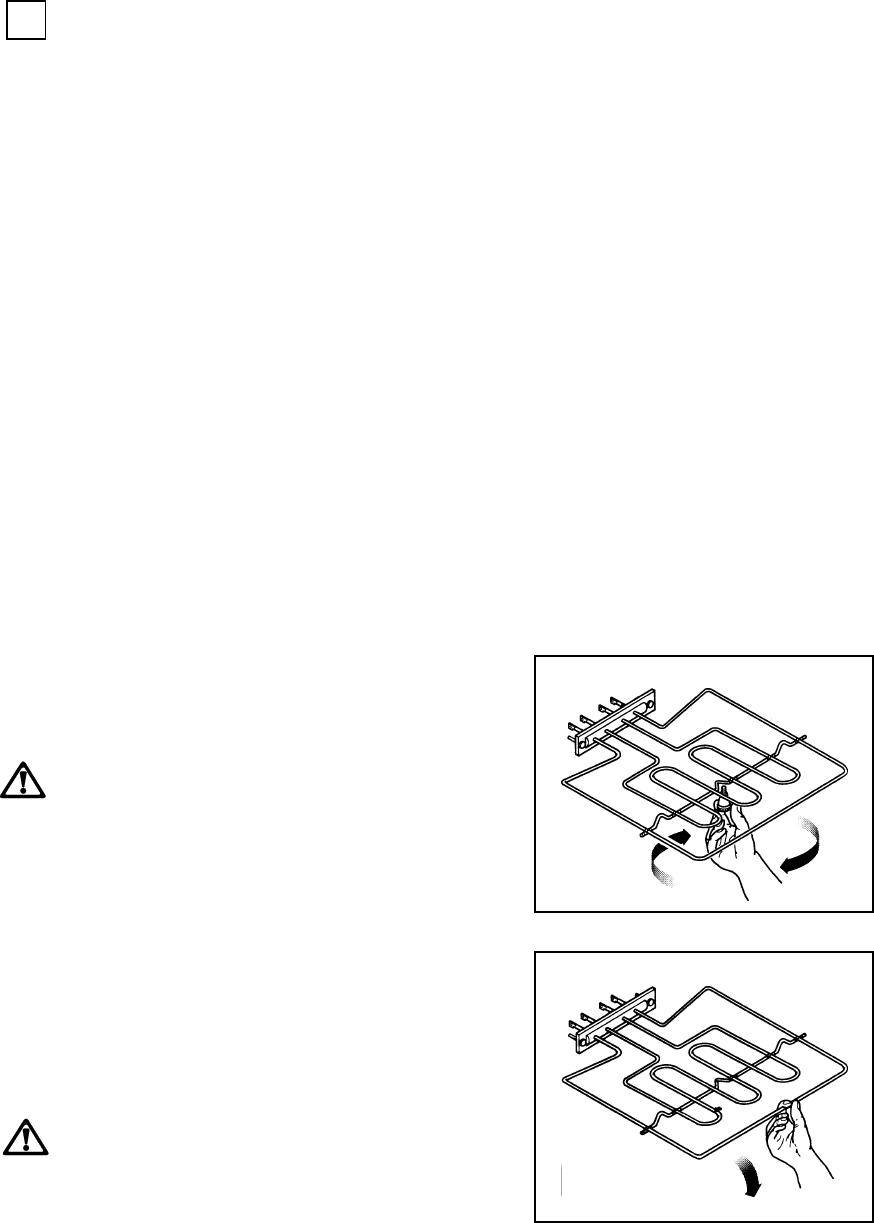
15
Cleaning the hinged grill
Both the top and the bottom ovens have been fitted
with a hinged grill element to enable you to clean
the roof of the oven easily.
Before proceeding ensure the oven is
cool and is isolated from the electricity
supply.
1) Undo the screw which holds the grill in
place (see diagram).
2) Then gently pull the grill downward to
allow access to the oven roof (see diagram).
3) Clean the oven roof with a suitable
cleaner and wipe dry before replacing the
hinged grill element.
4) Gently push up the grill element into place
and firmly screw into place the holding nut.
Ensure the grill holding nut is firmly in place to
avoid the grill falling down when in use.
FO 0781
FO 0778
Care of catalytic liners (Main Oven)
Catalytic liners destroy splashes of food and fats
when the oven temperature is raised to around
220°C.
To aid this process it is a good idea to run the oven
for an hour or two per week, without food, to ensure
continued good performance from the Catalytic
liners.
Manual cleaning of the Catalytic liner is not
recommended. Damage will occur if soap
impregnated steel wool pads, aerosol cleaners
and any other abrasives are used.
Slight discoloration and polishing of the Catalytic
surface may occur in time. This does not affect
the Catalytic properties in any way.
Follow the recommendations below to keep
oven soilage to a minimum.
Hints and Tips
i
COOKING TO REDUCE SOILAGE
Cook at the recommended temperatures. Higher
temperatures during roasting will increase soilage.
Try cooking to lower temperatures for an
increased length of time, you will save energy and
often the joint is more tender.
Use minimal, if any, extra oil or fat when roasting
meat; potatoes only require brushing with fat
before cooking. Extra fat in the oven during
roasting will increase splashing and soilage.
It is NOT necessary to add water to the meat tin
when roasting. The water and the fat juices from
the joint create excessive splattering during
cooking, even at normal temperatures, as well as
causing condensation.
Covering joints during cooking will also prevent
splashing onto the interior surfaces; removing the
covering for the last 20-30 minutes will allow extra
browning, if required. Some large joints and
turkeys especially benefit by this method of
cooking, allowing the joint to cook through before
the outside is overbrowned.
Do use the roasting tin. During roasting, the fat
from the joint will be contained beneath the trivet
and therefore prevent it from splattering onto the
'Catalytic' liner.
F


















